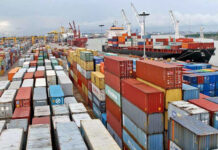The International Monetary Fund (IMF) has forecasted that Bangladesh’s growth rate will increase in the current fiscal year. According to them, the country’s economic growth rate in the 2021-22 fiscal year could stand at 6.6%. OCOVID-19 outbreaks are expected to slow down and growth will be significantly faster because of supportive government policies.
In addition, the growth rate in the 2022-23 fiscal year could stand at 7.1%. The IMF predicts that growth will accelerate as the global business environment improves and vaccination programs gain momentum.
According to the periodical estimates of the Bangladesh Bureau of Statistics (BBS), Bangladesh’s growth in the fiscal year 2020-21 stood at 5.43%. The IMF says the impact of the government’s budget allocation is being noticed in the economy.
The IMF has suggested increasing the supply of revenue to maintain the trend of growth. But the revenue-to-GDP ratio in the country is very low. The IMF has identified this reality as a risk. According to their advice, financial sector stability and modernization of policy framework is essential.
Recently, a group led by IMF economist Rahul Anand visited Dhaka. In the wake of his visit, the IMF issued a statement on Bangladesh.
That statement had this forecast of growth. However, in the statement, Rahul Anand gave some observations. He said that in order to ease the pressure on the financial sector of Bangladesh, it was necessary to leave behind the COVID-19 incentives in the right time. Corporate good governance, legal framework, control and monitoring are essential to curb bad debts.
Rahul Anand also suggested a transition from LDC. He said Bangladesh needs to take specific steps to maintain competitiveness in the world recovering from COVID-19 and to make the transition from LDC a success – increasing private investment and increasing productivity. Structural reforms are needed to maintain the trend of private sector-based growth; such as development of governance, diversification of exports, capacity building to cope with the impact of climate change, etc.
During the visit, the IMF delegation met with the Governor of Bangladesh Bank, Finance Secretary, Chairman of the National Board of Revenue (NBR) and other senior government officials. They also met with business representatives, banks, trade unions and development partners.



